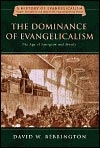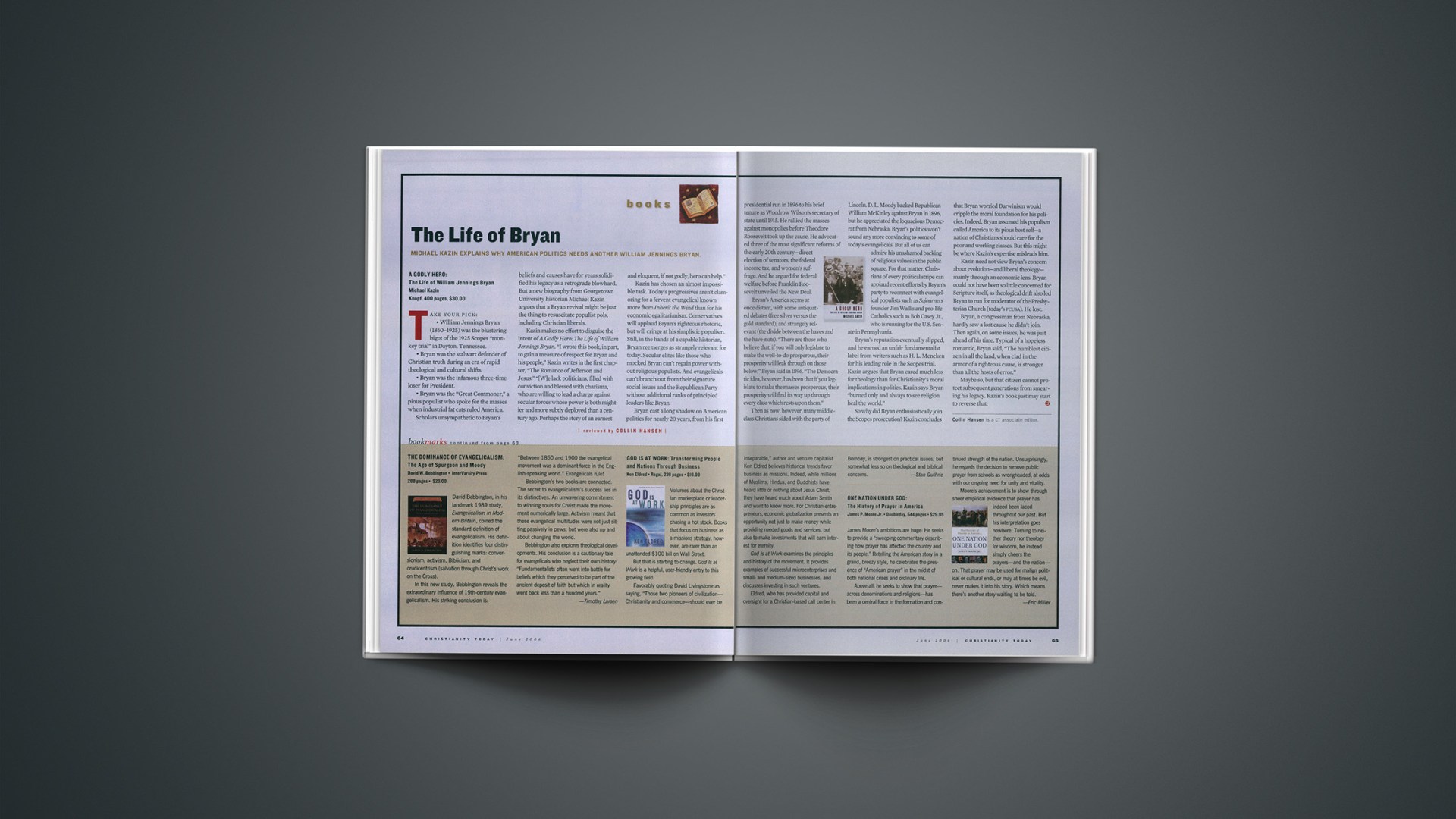David Bebbington, in his landmark 1989 study, Evangelicalism in Modern Britain, coined the standard definition of evangelicalism. His definition identifies four distinguishing marks: conversionism, activism, Biblicism, and crucicentrism (salvation through Christ’s work on the Cross).
 THE DOMINANCEOF EVANGELICALISM:The Age ofSpurgeon and Moodyby David W. BebbingtonInterVarsity Press288 pp.; $23.00 |
In this new study, Bebbington reveals the extraordinary influence of 19th-century evangelicalism. His striking conclusion is: “Between 1850 and 1900 the evangelical movement was a dominant force in the English-speaking world.” Evangelicals rule!
Bebbington’s two books are connected: The secret to evangelicalism’s success lies in its distinctives. An unwavering commitment to winning souls for Christ made the movement numerically large. Activism meant that these evangelical multitudes were not just sitting passively in pews, but were also up and about changing the world.
Bebbington also explores theological developments. His conclusion is a cautionary tale for evangelicals who neglect their own history: “Fundamentalists often went into battle for beliefs which they perceived to be part of the ancient deposit of faith but which in reality went back less than a hundred years.”
Copyright © 2006 Christianity Today. Click for reprint information.
Related Elsewhere:
The Dominance of Evangelicalism is available from Christianbook.com and other book retailers.
More information is available from InterVarsity Press.
The Dominance of Evangelicalism is part of InterVarsity’s History of Evangelicalism Series, which includes Mark Noll’s The Rise of Evangelicalism.
CT interviewed Noll about his book.










